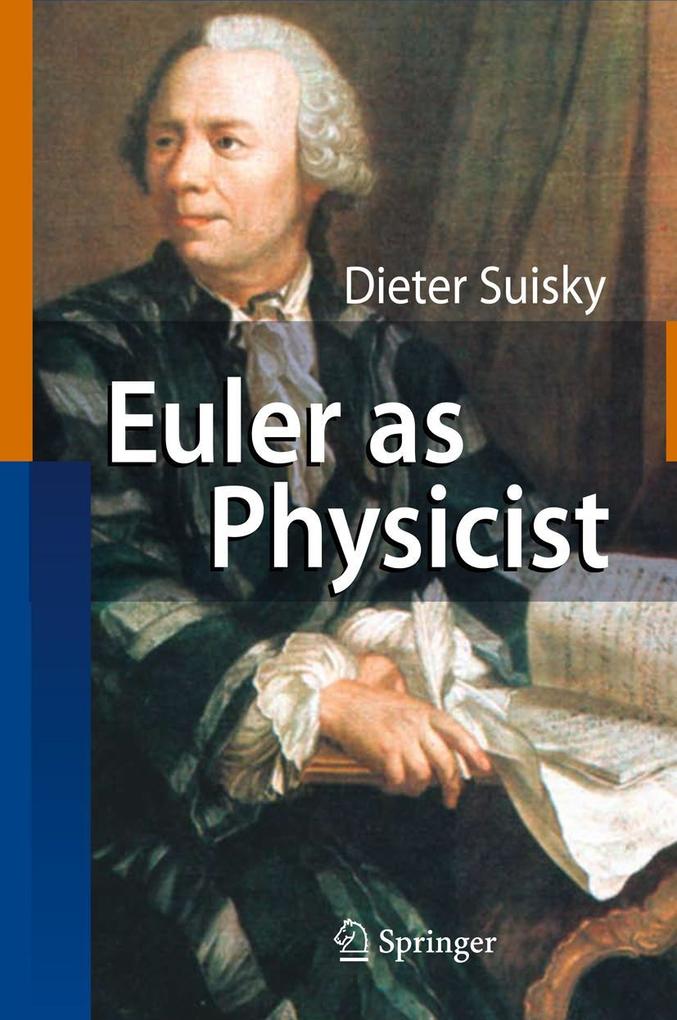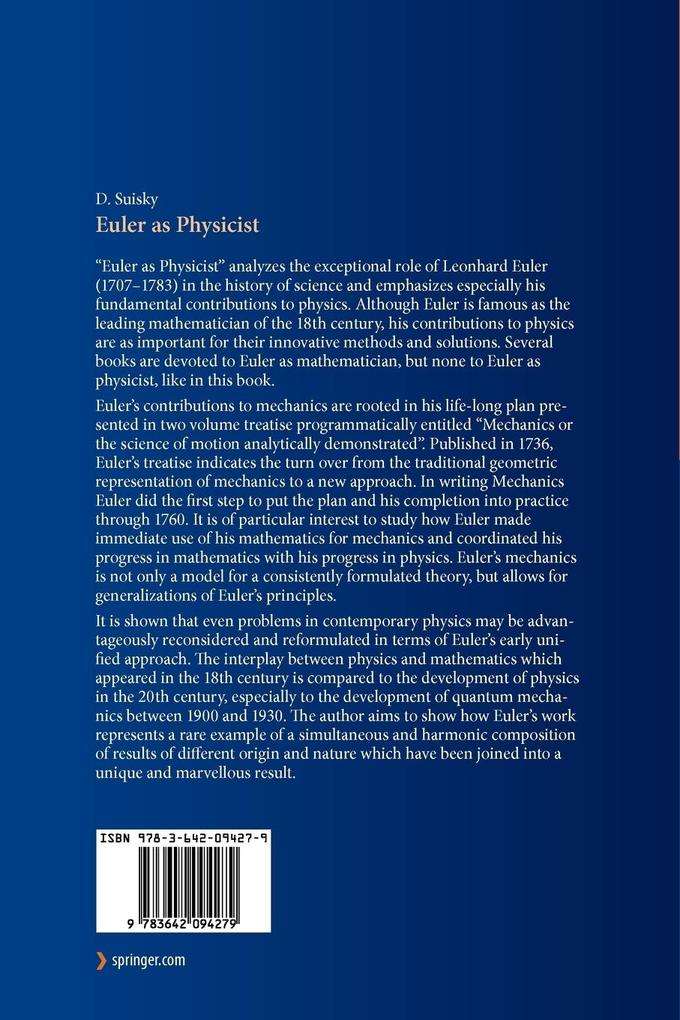The subject of the book is the development of physics in the 18th century centered upon the fundamental contributions of Leonhard Euler to physics and mathematics. This is the first book devoted to Euler as a physicist. Classical mechanics are reconstructed in terms of the program initiated by Euler in 1736 and its completion over the following decades until 1760. The book examines how Euler coordinated his progress in mathematics with his progress in physics.
In this book the exceptional role of Leonhard Euler in the history of science will be analyzed and emphasized, especially demonstrated for his fundamental cont- butions to physics. Although Euler is famous as the leading mathematician of the 18th century his contributions to physics are as important and rich of new methods and solutions. There are many books devoted to Euler as mathematician, but not as physicist. In the past decade, special attention had been directed at the development of science in the 18th century. In three distinguished tercentenary celebrations in - casion of the births of Pierre Louis Moreau de Maupertuis (1698-1759), Emilie du Chatelet (1706-1749) and Leonhard Euler (1707-1783) the merits of these scholars for the development of the post-Newtonian science had been highly acknowledged. These events were not only most welcome to remember an essential period in the past, but are also an opportunity to ask for the long lasting in uence on the further development of science until present days.
Inhaltsverzeichnis
The Predecessors: Descartes, Newton and Leibniz. - Newton and Leibniz on Time, Space and Forces. - Newton and Leibniz on the Foundation of the Calculus. - Euler s Program for Mechanics. - The Foundation of the Calculus. - Euler s Early Relativistic Theory. - Euler s Wirksamkeit, Helmholtz s Treatment of Energy Law and Beyond. - Euler s Mechanics and Schrödinger s Quantum Mechanics.













